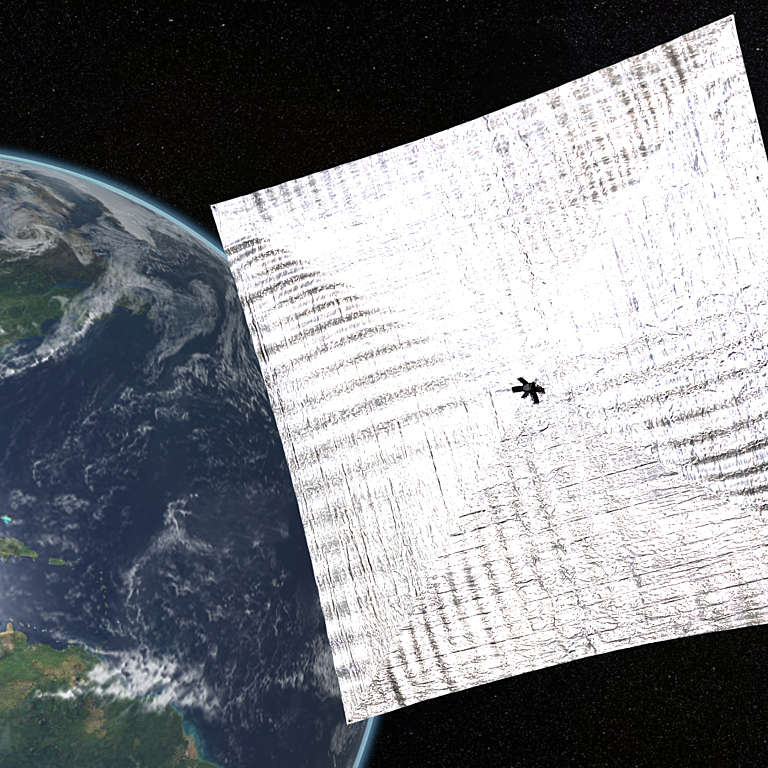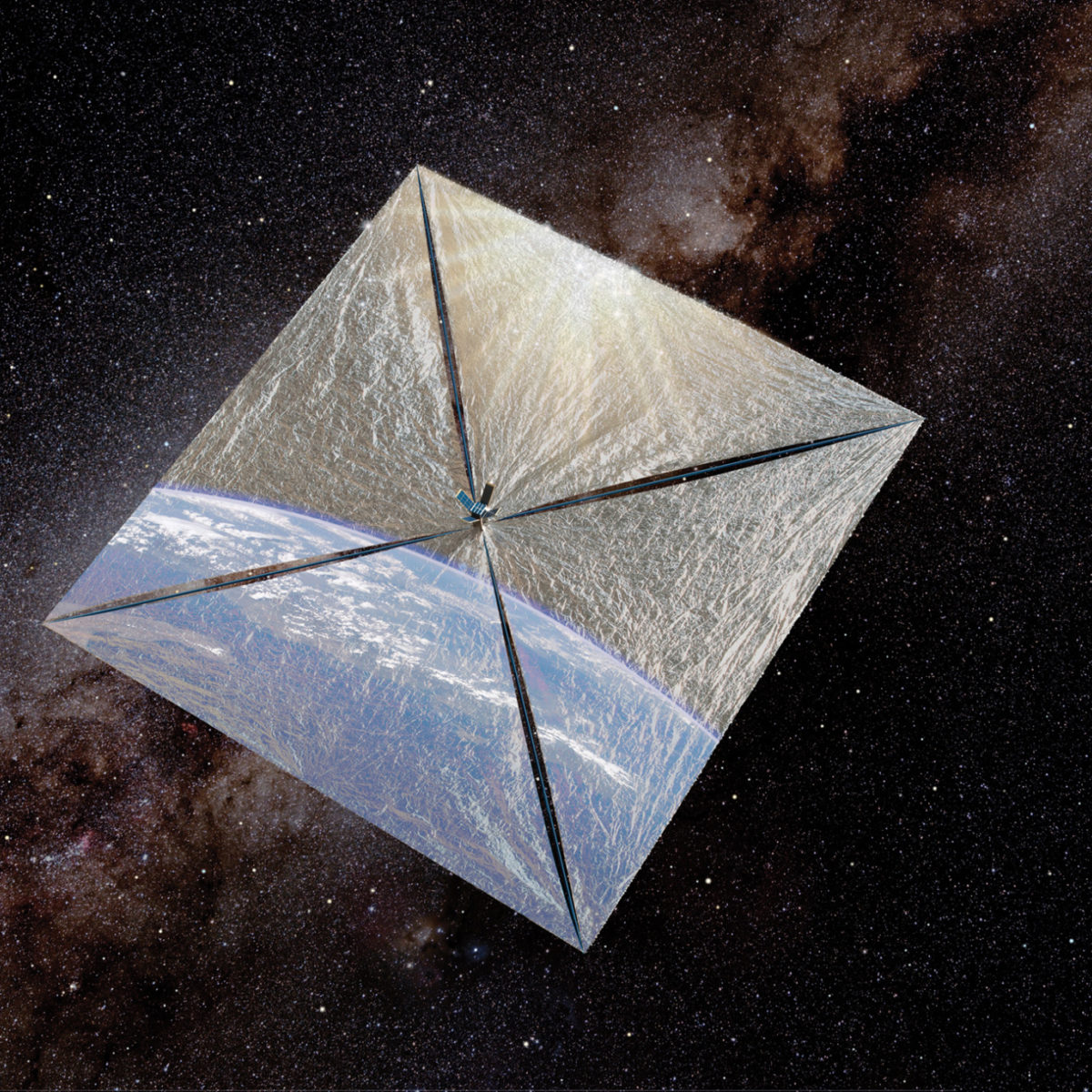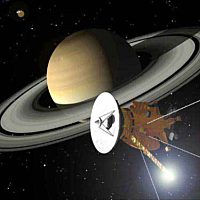All
All
Stories, updates, insights, and original analysis from The Planetary Society.
The buzz begins!
Yesterday, we sent out an invitation to print, TV, and Web media for the launch event we'll be holding at our Pasadena headquarters on Tuesday. So today, the buzz really began about our mission, and the phones are beginning to ring off the hook.
Cosmos 1 "Mated" to Volna Rocket in Preparation for Tuesday Launch
The world’s first solar sail spacecraft, Cosmos 1, is now mated to its Volna launch vehicle and ready for its ride into space.
Cosmos 1: Another rehearsal...
Rehearsals don't always go so well, which is the whole point of rehearsals. That was true both for us and for the Russians today, in separate simulations of mission operations.
"Our works with the spacecraft are finished successfully."
Here at Cosmos 1 Project Operations Pasadena -- or POP -- we are scrambling to get our mission operations plans and procedures ready for our launch, just 11 days from now.
Mars Exploration Rovers Update: Opportunity Roves Out of Sand Dune as Spirit Uncovers Clues of Past Explosions
Nearly a year and a half after landing on the Red Planet, the Mars Exploration Rovers are continuing to collect important science and impress the team with their resiliency.
MESSENGER Snaps Earth-Moon Image in Approach to First Flyby
As MESSENGER began its approach for its August 2 flyby of Earth, its cameras have snapped their first images. The images clearly show a cloudy Earth—and, to scientists' surprise, the Moon as well.
Worldwide Network to Track Cosmos 1
From Moscow to the Marshall Islands and California to the Czech Republic, tracking stations around the world will receive data from Cosmos 1, the world's first solar sail spacecraft after it launches on June 21, 2005.
Launching Cosmos 1 on a Soviet ICBM
The biggest reason that NASA—as well as other western space agencies—has not attempted a solar sail flight is that the cost of launching even a small spacecraft is so high that they are unwilling to carry out a mission with very modest goals.
Martian Orbiter Takes Pictures of Neighboring Crafts Passing By
During April 2005, the Mars Global Surveyor happened to pass relatively close to Odyssey and Mars Express. What resulted were remarkably clear pictures of human-made spacecraft orbiting and alien world.
New Mosaics of Huygens' Titan Images
Although the two spacecraft traveled a billion kilometers together to study Titan, Cassini and Huygens are two very different types of missions.
Mars Exploration Rovers Update: Spirit Investigates New Outcrop Methuselah as Opportunity Roves into a Ripple and Gets Stuck
The Mars Exploration Rovers have both encountered some truly challenging obstacles in recent days, but have also presented the team with some surprises, and continue to be in overall good health some 16 months after bouncing to a landing, and more than a year after completing their primary missions.
Astronomers Revise Torino Scale Asteroid Advisory System
Astronomers have revised the Torino scale, the color-coded advisory system to assess the threat of asteroids and other near-Earth objects (NEOs) to make it easier for the public to understand.
Mars Exploration Rovers Update: Spirit 'Snaps' Dust-Devils while Opportunity Roves on to Viking (the Crater)
After more than a year of active-duty research, the Mars Exploration Rovers have caught 'second winds' -- in part because of their new, recently uploaded software and, in part -- however strange it may seem -- from the planet's notorious dust devils.
Pluto: The Discovery of a Planet
To mark the 75th anniversary of the discovery of the planet Pluto, The Planetary Society presents to its readers the remarkable story of the discovery.
The Discovery of a Planet, Part 6: From Pluto to Sedna
74 years after Clyde Tombaugh discovered Pluto as a faint dot on a pair of photographic plates, a modern group of astronomers made another remarkable discovery. On March 15, 2004, Michael Brown of Caltech, Chad Trujillo of the Gemini Observatory, and David Rabinowitz of Yale announced the discovery of Sedna – the furthest object ever detected in the Solar System.
The Discovery of a Planet, Part 5: The Aftermath
The discovery of Planet X was announced to the world on March 13, 1930, which marked the anniversary of William Herschel’s discovery of Uranus in 1781 as well as Percival Lowell’s birthday. The observatory’s communiqué emphasized that the discovery was no coincidence, but the vindication of Lowell’s predictions made years before.
The Discovery of a Planet, Part 4: Clyde's Search
Since his teenage years Clyde Tombaugh had been an avid amateur astronomer and a gifted telescope builder. Based on instructions contained in an article from a boy’s Sunday school paper, he built a series of telescopes of increasing power and quality on the family farm.
Cassini's Radio Ear on Huygens
Scientists have released a new sound from Huygens, representing the radio signal that Cassini detected from the little probe as it descended to Titan's surface.
The Discovery of a Planet, Part 3: Planet X
The discovery of Neptune accounted for nearly all the unexplained motions of the outer planets of the Solar System. Nevertheless, several astronomers insisted that some unexplained residual motions remained, pointing to the presence of a ninth planet beyond the orbit of Neptune.
The Discovery of a Planet, Part 2: Out of the Six-Planet World
Since humans first set their eyes to the stars, they noticed that a few of these bright objects behaved differently from the others. Whereas all the stars moved together, revolving around the Earth once every 24 hours, five appeared to move within the firmament among the other stars. Accordingly, they were named “planets,” meaning “wanderers” in Greek.


 Explore Worlds
Explore Worlds Find Life
Find Life Defend Earth
Defend Earth


 Sun
Sun Mercury
Mercury Venus
Venus Earth
Earth Mars
Mars Jupiter
Jupiter Saturn
Saturn Uranus
Uranus Neptune
Neptune Small Bodies
Small Bodies






